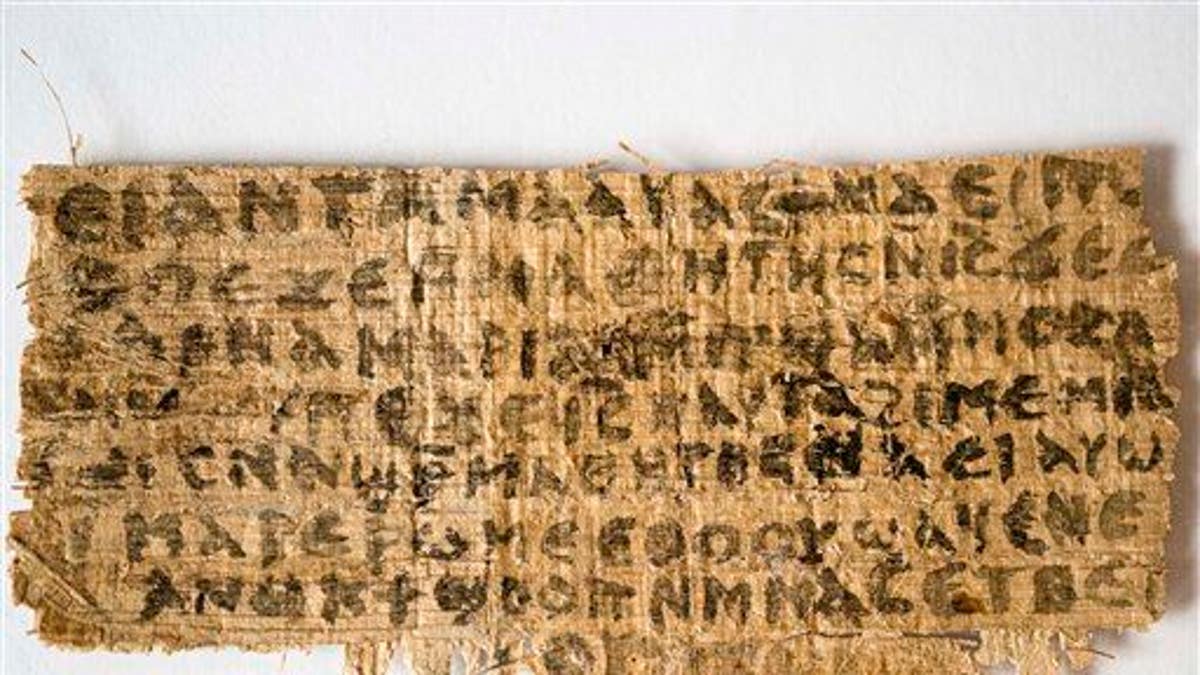
This Sept. 5, 2012, photo released by Harvard University shows the fragment. (AP Photo/Harvard University, Karen L. King)
To call it controversial is putting it mildly: Harvard professor Karen L. King in September 2012 debuted an ancient papyrus now known as the "Gospel of Jesus' Wife" at a conference in Rome.
The papyrus makes an explicit reference to the woman's existence with the line, "Jesus said to them, 'My wife...'" Now, extensive testing by professors from Columbia, Harvard, and MIT in the fields of electrical engineering, chemistry, and biology has found no indications that it is a modern forgery, per an article by King published today in the Harvard Theological Review.
The Boston Globe says it most likely dates to eighth-century Egypt, and the chemical composition of its ink is in line with the carbon-based inks the people of that country used at the time.
But the Globe cautions that a master forger could have accessed the proper materials, and that traditional ink-dating methods couldn't be used because the papyrus is so small: a fragment roughly 1.5-by-3 inches in size bearing just eight incomplete lines (translation here).
The Review also published a rebuttal by Brown Egyptology professor Leo Depuydt, who points to "gross grammatical errors" he says no native speaker of Coptic would make, the New York Times reports.
(More criticism of the papyrus here.) The new findings certainly don't prove that Jesus was married, a point that King has never challenged; she'd like to see the debate shift to discussions of the document's significance, and "questions like, 'Why does Jesus being married, or not, even matter?'" King was in 2011 asked to review the fragment at the request of its anonymous owner, who says he bought it more than a decade earlier from a collector who said he purchased it, along with five others, in East Germany in the '60s.
More From Newser
